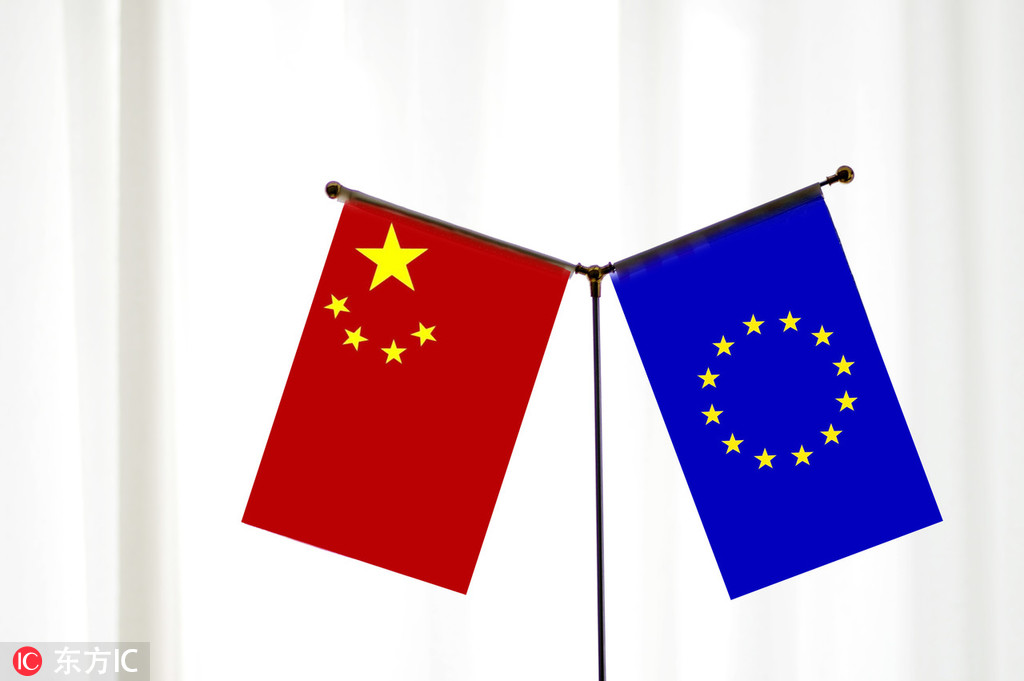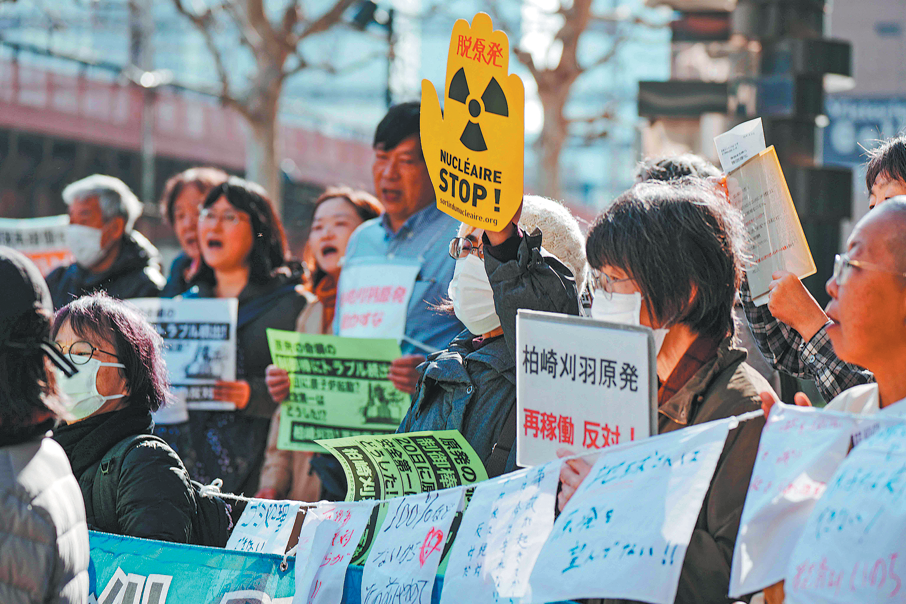Full text of China's Policy Paper on the European Union


BEIJING - China on Tuesday issued a policy paper on the European Union (EU). Following is the full text of the policy paper:
China's Policy Paper on the European Union
(December 2018)
The world is undergoing major development, changes and adjustments. The trend toward multi-polarity, economic globalization, IT application and cultural diversity is deepening. Countries are increasingly interconnected and interdependent. Meanwhile, the world is witnessing growing instabilities and uncertainties, with unilateralism, protectionism and de-globalization on the rise.
Remarkable socio-economic progress has been achieved since China launched reform and opening-up 40 years ago. Yet China's international status as the world's biggest developing country remains unchanged. Under the guidance of Xi Jinping Thought on Socialism with Chinese Characteristics for a New Era, China will stay committed to pursuing peaceful development, comprehensively deepening reform and breaking new grounds in opening-up on all fronts, and building a new type of international relations and a community with a shared future for mankind in order to create new opportunities for and make fresh contributions to world peace and development.
European integration has advanced as regional countries and their people endeavor to maintain peace and gain strength through unity. The European Union, a grouping of countries with the highest level of integration and strong overall strength, plays a strategically important role in the international arena. Despite events including Brexit, the EU has remained committed to the direction of integration, pressed ahead with reforms in response to challenges and played a major role in regional and international affairs.
As major participants in and contributors to world multi-polarity and economic globalization, China and the EU share extensive common interests in upholding world peace and stability, promoting global prosperity and sustainable development and advancing human civilization, making the two sides indispensable partners to each other's reform and development. The EU has been China's largest trading partner for 14 years in a row and China the EU's second largest trading partner. Developing a sound relationship with the EU has long been a foreign policy priority for China.
The two policy papers on the EU issued by the Chinese government in 2003 and 2014 provided important guidance to the development of China-EU relations. The year 2018 marks the 15th anniversary of the China-EU Comprehensive Strategic Partnership and the 20th anniversary of the China-EU Summit. Based on past achievements and in keeping with the times, China's third policy paper on the EU aims at identifying the direction, principles and specific measures to deepen the China-EU Comprehensive Strategic Partnership in the new era and promote greater development of China-EU relations.
Part One
The Guiding Principles of China-EU Relations
Since the inception of the China-EU Comprehensive Strategic Partnership in 2003, the two sides have broadened and deepened their relations and fostered all-dimensional, multi-tiered and wide-ranging exchanges and cooperation. In his historic visit to the EU headquarters in 2014, President Xi Jinping reached important consensus with EU leaders on building China-EU partnership for peace, growth, reform and civilization, charting the course for deepening the win-win China-EU Comprehensive Strategic Partnership and setting out the overarching goals of China's policy on the EU in the long run. China proposes that the two sides view the China-EU relationship from a strategic and long-term perspective and adhere to the following principles in developing China-EU relations:
-Uphold mutual respect, equality and the one China principle to cement the most important political foundation of China-EU relations.
-Uphold openness, inclusiveness and win-win cooperation, strengthen exchanges in development philosophy and coordination of development plans.
-Uphold fairness and justice, stick together in trying times, and join hands to improve the global governance system.
-Uphold inter-civilization dialogue and harmony in diversity to facilitate mutual learning between the Chinese and European civilizations.
China welcomes a united, stable, open and prosperous Europe, supports the European integration process, and remains committed to developing ties with EU institutions, member states and other European countries in a comprehensive, balanced and mutually reinforcing manner. Based on common interests and needs, China and the Central and Eastern European countries have conducted win-win, open and transparent cross-regional cooperation. The support and constructive participation by the EU and other parties are welcomed. China hopes to see Brexit proceed in an orderly fashion and stands ready to advance China-EU and China-UK relations in parallel.
China will continue to step up high-level exchanges with the EU and EU member states, fully leverage the role of the China-EU Summit in providing strategic guidance to China-EU relations, further implement the China-EU 2020 Strategic Agenda for Cooperation the two sides jointly formulated in 2013 and discuss follow-up plans, and reinforce inter-governmental exchanges and dialogues at various levels. Exchanges on an equal footing and mutual learning should be enhanced between our legislatures, political parties, localities and social groups. China and the EU should expand practical cooperation in various fields and engage in third party cooperation. These exchanges and cooperation will help the two sides draw on each other's strengths, embrace sound interactions and achieve common development.
As an important global public good from China, the Belt and Road Initiative follows the principle of consultation and cooperation for shared benefits, upholds openness, inclusiveness and transparency, observes international rules and market principles, and pursues high quality and high standards tailored to local conditions. China welcomes the active participation of the EU and other European countries in a joint effort to build a road that promotes peace, prosperity, openness and innovation, connects civilizations, facilitates green development, and upholds high ethical standards.
Honoring the commitment to respecting China's sovereignty and territorial integrity, upholding the one China principle with concrete actions, and respecting China's core interests and major concerns bear on the long-term stability and growth of China-EU relations. The EU should explicitly oppose "Taiwan independence" in any form, support China's peaceful reunification, and handle Taiwan-related issues with prudence. Exchanges between the EU and Taiwan should be strictly limited to nonofficial and people-to-people activities, and there should be no official contact or exchanges in any form. The EU should refrain from signing with Taiwan any agreement with sovereign implications or official in nature. No institutions of an official nature should be established. The EU should not endorse Taiwan's membership in any international organization where statehood is required, not sell Taiwan any weapons or any equipment, materials or technologies that can be used for military purposes, and not carry out military exchanges or cooperation in any form.
The central government of China supports and encourages the governments of the Hong Kong Special Administrative Region and the Macao Special Administrative Region in developing mutually beneficial and friendly cooperation in such areas as economy, trade, culture and tourism with the EU and its member states in accordance with the principle of "one country, two systems" and provisions of the two Basic Laws. Given that Hong Kong and Macao are China's special administrative regions, their affairs are part of China's internal affairs and should not be interfered in by the EU side.
China appreciates the position of the EU and its member states that recognizes Tibet as an integral part of China's territory and does not support "Tibet independence". The EU should not allow leaders of the Dalai group to visit the EU or its member states in any capacity or under any name to carry out separatist activities, not arrange any form of contact with officials from the EU and its member states, and not support or facilitate any anti-China separatist activities for "Tibet independence". It is also imperative that the EU side not support or facilitate the East Turkestan Islamic Movement and any other activity of anti-China separatism, violent terrorism and religious extremism.
Despite differences in history, culture, social systems and development stages, China and the EU have no fundamental strategic conflicts but share much more common ground than differences. It is important that the two sides engage in dialogues instead of confrontation, enhance mutual understanding and trust through equal consultation, build as much consensus as possible, accommodate each other's legitimate concerns, and handle disputes and frictions in a constructive way.
China is ready to work with the EU to strengthen dialogue and coordination at bilateral, regional and global levels, promote and practise multilateralism, uphold the UN-centered international order and system, and tackle global challenges. China and the EU need to stand firmly against unilateralism and protectionism, push for a more open, inclusive and balanced economic globalization beneficial to all, and support the international community in formulating and improving fair, equitable and just international rules and standards to ensure that all parties engage in decision making as equals, enjoy their legitimate rights, and shoulder responsibilities and obligations commensurate with their levels of development.































